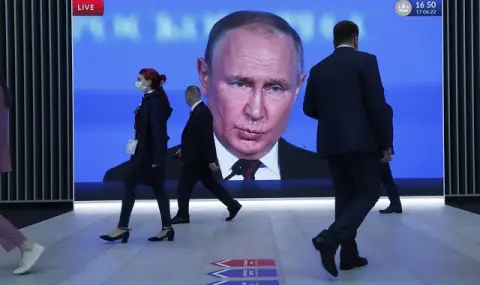Vladimir Putin may need a break from war, but by no means from peace. A temporary cessation of hostilities would allow him to rebuild and strengthen his military base, which would put him in a better position to resume the war. This is what Ingrida Shimonite, Prime Minister of Lithuania, said in an interview with the French newspaper Le Figaro.
LE FIGARO: Has the war entered Ukraine at a decisive moment?
INGRIDA SHIMONITE: We must beware of too much pessimism, just as we had to beware of too much optimism at the beginning of the war. The determination of the Ukrainians is still the same. But their victory will depend on how we help them. However, Russia is a country that functions differently from our democracies. Vladimir Putin can put any kind of pressure on his people. He can invest as much as he wants in the military sphere to the detriment of the Russians. This is not the case in democratic countries. But will Russia's economic problems allow it to continue to exist as long as it wants? I don't believe it.
LE FIGARO: Some believe they have detected in Vladimir Putin's recent speeches signals of a desire for appeasement. Do you share this opinion?
I. SHIMONITE: It is possible that Vladimir Putin needs a break from the war, but by no means from peace, unless of course Ukraine capitulates, which is not the position of either the Ukrainians or the West. A break would perhaps allow him to get sanctions relief and rebuild and strengthen his military base. For the better renewing the war hereafter.
LE FIGARO: Does Vladimir Putin have red lines and what are they?
I. SHIMONITE: First of all, the subject of Putin's red lines is a big bluff. Putin threatens the West with escalation, including nuclear escalation, because he knows that in the West the population does not want war, and that is quite normal. Therefore, he is trying to manipulate Western public opinion so that they put pressure on their governments to limit their aid to Ukraine.
This is a tactic used regularly by terrorists. But we must not tremble at his threats. Because otherwise Putin will continue to move forward. If not stopped, the whole world will learn this lesson: in the 21st century, a leader may be sick enough to change the borders of Europe by force.
LE FIGARO: Which of the three Baltic countries is most vulnerable to the Russian threat? Who could be the next target?
I. SHIMONITE: This is difficult to measure, because Vladimir Putin is waging a hybrid war against his enemies, depending on the country, using military force, propaganda, sabotage, manipulation of Russian minorities... All the lights are on at the same time. Lithuania is very vulnerable due to its geographical position and its long border with Belarus.
If Russia wants to join the Kaliningrad enclave to Belarus, it will go through us, through the Suwalki Corridor, located between Lithuania and Poland. But at the same time we have a much smaller Russian minority than Estonia or Latvia. I don't know who the next target will be, but what I do know is that Russia has not given up on building a buffer zone around itself, on the territory of its neighbors, to protect it from an imaginary attacker.
LE FIGARO: Between Kamala Harris and Donald Trump, who do you think is the best or worst candidate?
I. SIMONITE: A lot will depend on the teams around them. We shared certain visions of Donald Trump during his first term. Especially when he denounced the fact that Europe had been content with American security guarantees for too long. It's brutal, but fair. The European Union must absolutely take its defense into its own hands and build a defense industry.
As for his promise to make a deal with Putin, it has no chance of success unless he accepts a capitulation of Ukraine, which would be a nightmare for everyone. It is also necessary, whether with Kamala Harris or with Donald Trump, that the United States agrees to see Europe as an important part of geopolitics. Otherwise, it will be another gift for Vladimir Putin.
